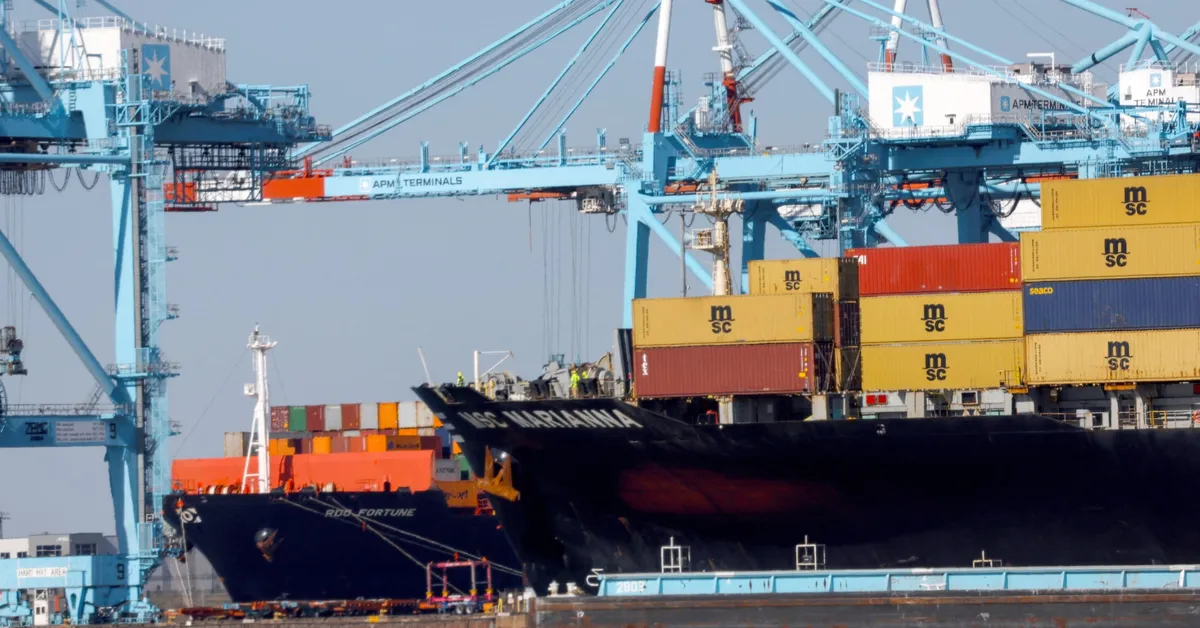
On April 10, 2023, U.S. President Donald Trump made a surprising announcement to pause the substantial tariffs he had recently imposed on numerous countries, leading to a significant rebound in battered global stock markets. This decision came just a day after steep new tariffs were enacted on most trading partners, further intensifying the ongoing trade war with China.
Trump's reversal on this issue followed a period of intense financial market volatility, the worst seen since the early days of the COVID-19 pandemic. The abrupt changes resulted in the loss of trillions of dollars in stock market value and triggered a worrisome surge in U.S. government bond yields. Addressing reporters after his announcement, Trump remarked, "I thought that people were jumping a little bit out of line; they were getting yippy," referring to the jitters often seen in sports.
European futures indicated potential major gains, although early signs suggested that the rally might be short-lived, with U.S. stock futures trading lower shortly after the announcement. Additionally, oil prices fell by approximately 1%, reflecting ongoing fears that escalating trade tensions could steer the global economy towards recession.
Since returning to the White House in January, Trump has repeatedly threatened various punitive measures against trading partners, only to rescind some of these decisions at the last minute. This unpredictable approach has left world leaders perplexed and has raised concerns among business executives. U.S. Treasury Secretary Scott Bessent claimed that the decision to pause tariffs was a strategic move aimed at bringing countries back to the negotiating table.
Despite his tariff reversal on other countries, Trump continued to maintain pressure on China, the world's second-largest economy. He increased tariffs on Chinese imports to 125%, up from the 104% that had taken effect just a day prior. In response, Beijing retaliated by imposing 84% tariffs on U.S. imports, matching Trump's aggressive tariff strategy. The ongoing trade war between the U.S. and China has become a high-stakes game of brinkmanship, with both nations refusing to back down.
China has reportedly engaged in discussions with the European Union and Malaysia to bolster trade in light of the current tensions. However, Australia has chosen not to collaborate with China on counter-tariff strategies, with Deputy Prime Minister Richard Marles stating, "We are not going to be holding hands with China in respect of any contest that is going on in the world."
Trump's announcement about pausing tariffs does not represent an absolute cessation of all duties. A blanket 10% duty on nearly all U.S. imports will remain in effect, along with existing tariffs on autos, steel, and aluminum. Notably, the 90-day freeze does not apply to duties imposed on goods from Canada and Mexico, which remain subject to 25% fentanyl-related tariffs unless they comply with the U.S.-Mexico-Canada trade agreement rules.
Trump's series of tariffs has already caused a significant sell-off in global stock markets, pressuring U.S. Treasury bonds and the dollar—two pillars of the global financial system. In light of the potential economic fallout, Canada and Japan have indicated their willingness to intervene to stabilize markets, a role typically assumed by the United States during economic crises.
While the sudden surge in stock prices following Trump's announcement may provide temporary relief, analysts warn that it may not fully reverse the damage already done. Surveys indicate a slowdown in business investment and consumer spending due to ongoing tariff concerns. A recent Reuters/Ipsos survey revealed that three out of four Americans anticipate rising prices in the coming months.
Goldman Sachs has revised its recession probability estimate to 45%, down from 65%, although they caution that the tariffs still in place could lead to an overall tariff rate increase of 15%. Treasury Secretary Bessent dismissed concerns about market turmoil, suggesting that Trump's tariff strategy was designed to create maximum negotiating leverage, positioning the U.S. advantageously in trade discussions.
Trump has communicated with global leaders, including those from Japan and South Korea, while a delegation from Vietnam recently met with U.S. officials to discuss trade matters. Although the timeline for negotiations with over 75 countries remains unclear, Trump expressed optimism about reaching a resolution with China, stating, "They just don't know how quite to go about it."
In a bid to reassure investors earlier in the week, Trump took to his Truth Social account, proclaiming, "BE COOL! Everything is going to work out well. The USA will be bigger and better than ever before!" He later added, "THIS IS A GREAT TIME TO BUY!!!"